FIVE STORIES ON TURTLE ISLAND
1. Reverberations echo from the ongoing personal attacks against Manitoba Indigenous female MLAs Nahanni Fontaine and Bernadette Smith, with one professor saying this may deter Indigenous women from seeking public office.
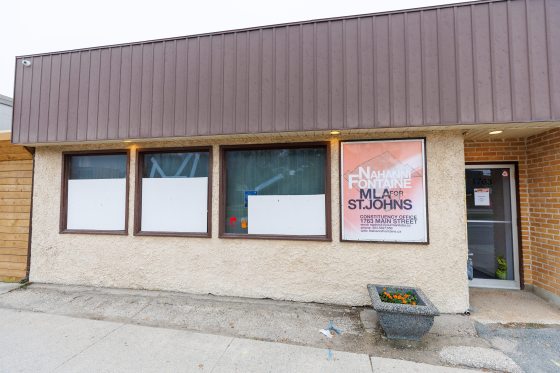
A fire was set and windows smashed at Nahanni Fontaine’s constituency office in late September. (Mike Deal / Free Press files)
Both leaders have said they won’t be intimidated but I concur with my Free Press colleague Tom Brodbeck that these attacks are not about “free speech” but are violent attacks on democracy itself.
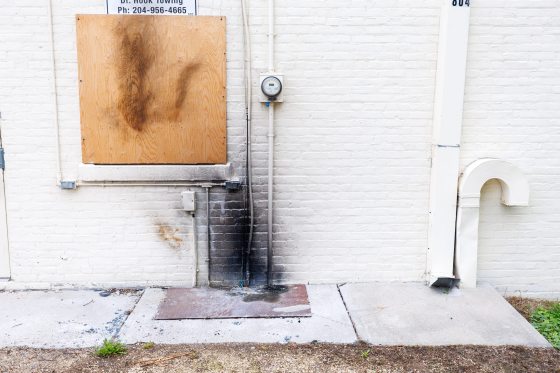
Bernadette Smith’s constituency office was also vandalized. (Mike Deal / Free Press files)
They are also cowardly, selfish, and evidence that the work these and other Indigenous women do is brave, remarkable, and more important than ever.
2. Speaking of Indigenous women, Piegan Blackfeet and Nez Perce actress Lily Gladstone — best known for her 2023 Golden Globe win in the Martin Scorsese-directed film Killers of the Flower Moon — guest-hosted the well-known PBS podcast and YouTube channel Crash Course.
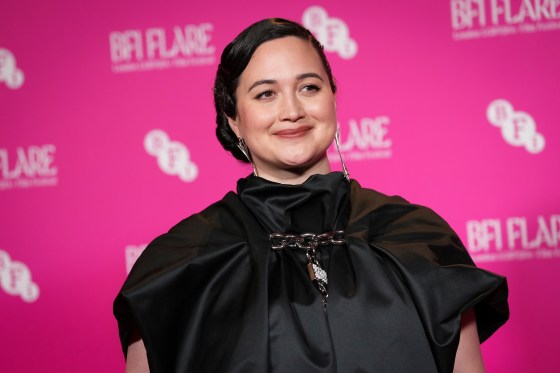
Lily Gladstone (Scott A Garfitt/Invision/Associated Press files)
The episode was a brilliant, detailed, and robust foray into the contributions of Indigenous women throughout history as heroes, peacemakers, matriarchs, and activists — and it quickly gained tens of thousands of views.
This isn’t anything new for Gladstone; she hosted episodes of Crash Course on the intricacies of film production before achieving fame as an actor.
If anyone wants a factual, balanced, and expertly researched approach to learning Native American history, there are many other Crash Course episodes worth watching, including this series or standalone episodes like this one or this one.
3. Earlier this month, six Canadians were captured by the Israeli military after joining a Gaza-bound flotilla to bring light to the ongoing humanitarian crisis there. They were released over the Thanksgiving weekend.
Among them was Cree and Dene activist MsKwaasin Agnew.
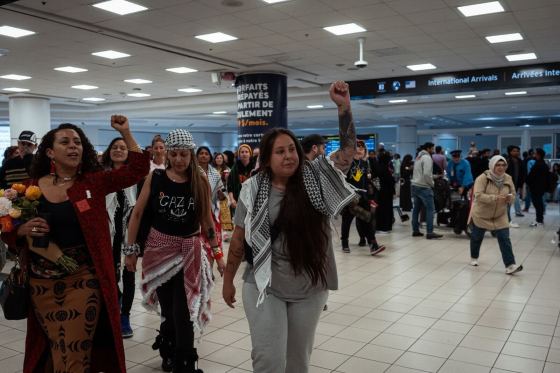
Mskwaasin Agnew, dressed in grey, raises her arm and joins with supporters after her return to Canada at Toronto Pearson International Airport on Oct. 11, 2025, following her detention by Israel(The Canadian Press/Handout/Joshua Best)
Agnew is a very popular young activist and harm-reduction worker with a powerful voice — as evidenced by the many who demanded Canadian authorities act quickly to get her released and who met her at Toronto’s Pearson airport after she returned home.
Many have written about the similarities in the experiences of Palestinians and of Indigenous peoples in Canada. (Check out this piece or this one).
The comparisons, while not universally agreed upon, are fairly convincing.
4. Cree and Salish singer Tia Wood joined pop star Shawn Mendes on stage in Vancouver Sunday. Wood was invited as a special guest to sing Mendes’s 2018 hit song Youth.

Tia Wood (Sammy Kogan / The Canadian Press files)
Wood, who added her own verse to the song, is coming off a 2025 Juno nomination for Contemporary Indigenous Artist of the Year and performed at the awards ceremony.
She is a TikTok star, as well as being the daughter of Earl Wood, one of the singers of the internationally-known traditional singing group Northern Cree.
As he brought Wood on stage, Mendes talked about how Indigenous peoples have affected him personally, saying: “I’ve been so incredibly lucky and blessed over the last few years to spend some time with some Indigenous communities around the world… What I know for sure is that the words will fall flat when describing how healing, and how beautiful, and how much we have to learn from the Indigenous people of this world.”
Speaking of remarkable contributions, check out this incredible piece by Eva Jewell entitled “The Missing Indigenous Women Canada Refuses to See” published in The Walrus.
Focused primarily on recent events in Manitoba, the piece convincingly shows that not using a gendered lens when talking about reconciliation “leaves Indigenous girls, women, and gender-diverse people more vulnerable” and how Canada’s upcoming economic choices will disproportionately affect them.
This isn’t the first brilliant piece by Jewell, an Anishinaabe professor at Toronto Metropolitan University. Check out more of her contributions here.
IN PICTURES
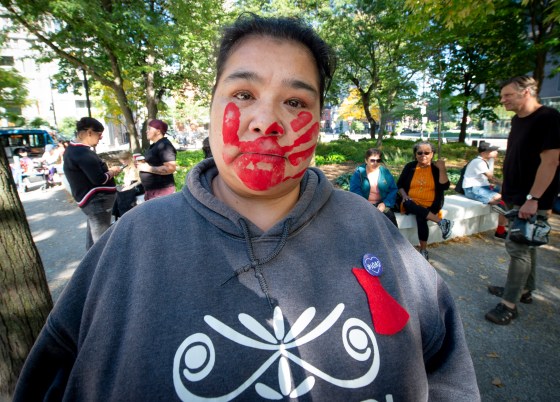
Shirley Pien, one of the speakers at Montreal’s March for Missing and Murdered Indigenous Women, Girls, Trans, and Two-Spirit People, by the Native Women’s Shelter of Montreal in partnership with Southern Quebec Inuit Association, poses for a photo on Oct. 4, 2025. (Peter McCabe / The Canadian Press files)
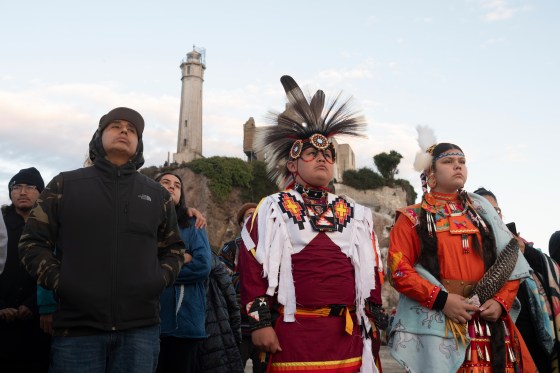
People watch the sun rise during a gathering on Indigenous Peoples Day on Alcatraz Island on Monday, Oct. 13, 2025, in San Francisco. (Laure Andrillon / The Associated Press files)
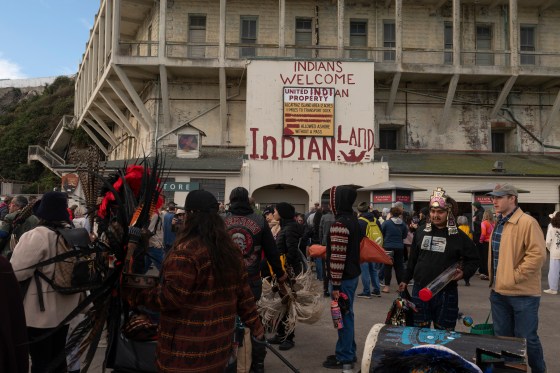
People wait to board a ferry after they attend a sunrise gathering during Indigenous Peoples Day on Alcatraz Island on Monday, Oct. 13, 2025, in San Francisco. (Laure Andrillon / The Associated Press files)
RECONCILI-ACTION OF THE WEEK
Every week I highlight an action, moment, or milestone forwarding reconciliation, illustrating how far Canada has come — and how far the country has yet to go.
This week’s reconciliaction is all who recognized, commemorated and participated in events for the Missing and Murdered Indigenous Women and Girls Awareness Day and the National Day of Action for Murdered and Missing Indigenous Women, Girls and Two Spirit Peoples (MMIWG2S+) — both observed on Oct. 4.
In case you haven’t noticed, this is the theme of much of my newsletter this week. The issue is an ongoing crisis and in many ways is centralized in Manitoba.
Red Dress Stories MB, a new website and database highlighting hundreds of missing and murdered women, girls and two-spirit people, launched earlier this month.
Events commemorating the day took place all across the country, from Yellowknife to Alberta to Montreal, and of course, to Winnipeg.
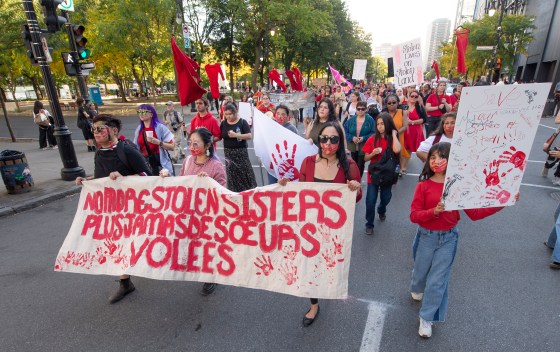
The Native Women’s Shelter of Montreal in partnership with Southern Quebec Inuit Association (SQIA) March for Missing and Murdered Indigenous Women, Girls, Trans and Two-Spirit People in Montreal, on Saturday, Oct. 4, 2025. (Peter McCabe / The Canadian Press files)
A notable announcement was the Manitoba government’s $3.5 million commitment to Ikwe Widdjiitiwin Inc. for the creation of a first-of-its-kind, 24-7 safe space for Indigenous women in Winnipeg.
A part of the province’s $20-million overall strategy to support Indigenous women, the provincial government has said the “Mino’Ayaawag Ikwewag Lodge” the space is meant to provide immediate, short-term safety and stabilization for Indigenous women at risk of violence, homelessness or exploitation and will provide a staffed, short-term safe space with eight private bedrooms and a kitchen and dining area; counselling and cultural wellness spaces with cultural supports; a dedicated crisis response line operated by trained Indigenous staff; and a mobile transportation service to ensure safe travel to the facility.
By data alone, no one can question that the ongoing mistreatment of Indigenous women is a national crisis — but we can be thankful and join those standing with our friends, cousins, daughters, sisters, partners, aunties, mothers and grandmothers.
|

